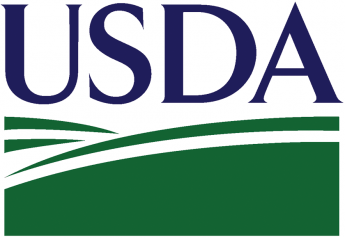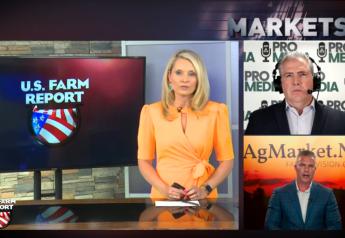U.S. Senators to Receive Classified Briefing on Ukraine Wednesday, Grain Deal at Risk After Weekend Missile Attack

The House and Senate are in session this week. Key events include another House farm bill listening session, this time at the Bruce Peterson Farm in Northfield, Minnesota. On the Russia/Ukraine war front, the focus is on whether weekend Russian missiles hitting Odesa port will abort the recent “paper agreement” on resuming grain exports from Ukraine.
Senators will receive a classified briefing on Ukraine Wednesday as the Russian invasion hits the five-month mark. Senate Majority Leader Chuck Schumer (D-N.Y.) requested the briefing. Officials from the Defense and State departments, as well as from the Director of National Intelligence’s office, are possible attendees at the briefing.
As first reported Saturday, Russia launched a missile attack on Ukraine’s key grain-exporting port of Odesa hours after signing a deal to ease its blockade and allow for the safe transport of grain necessary.
What We Know and Looming Questions
The Russians launched four “Kalibr” cruise missiles against the port, said a local official. Two of them struck the port, while Ukrainian defenses shot down the two others. Emergency teams could be seen trying to put out a fire inside the port. Russian officials have repeatedly said they don’t target civilian areas. After the Odessa port attack, the Russian Foreign Ministry said it was a precision strike that destroyed military infrastructure.
On Sunday, Moscow said Russian missiles had only hit military targets in Odesa and that no grain storage facilities were struck. Russia's foreign ministry claimed only military targets, including western weapon supplies, had been targeted. “Sea-based high-precision long-range missiles destroyed a docked Ukrainian warship and a warehouse with Harpoon anti-ship missiles supplied by the U.S. to the Kyiv regime,” ministry spokesman Igor Konashenkov said at a daily briefing.
Related News: Russian Cruise Missiles Hit Odesa One Day After Signing Deal to Resume Ukraine Grain Exports
Ukrainian president Volodymyr Zelenskyy claimed Moscow had broken the terms of the deal, the first of its kind between the warring parties, adding it was "the responsibility of the U.N." to ensure the agreement works. "This only proves one thing: whatever Russia says and promises, it will find ways not to implement it," Zelenskyy said Saturday night.
The route of the “maritime humanitarian corridor” is not yet set; as is the minimum distance from it that military ships, aircraft or drones would be required to maintain.
Another problem is grain storage. With about 60 million tonnes of grain expected from this year’s crop now starting to be harvested, Ukraine lacks storage for about 15 million to 18 million tonnes of grain. If the crops cannot be shipped out soon, much will be left to rot.
Ukraine could export 60 million tons of grain in eight to nine months if its ports were not blockaded, but Russia's strike on the port of Odessa showed it will definitely not be that easy, an economic adviser to the Ukrainian president said on Sunday, Reuters reported.
Related News: Ukraine Works to Resume Grain Exports Despite Missile Strike, Flags Future Russian Strikes as Risk
Ukraine could earn $10 billion by selling 20 million tons of grain in silos and 40 million tons from its new harvest, adviser Oleh Ustenko said. The harvest totals 60 million tons, of which 20 million are for domestic consumption, he said. "If the ports were unblocked now and we say we need to move 60 million tons of grain... then we would transport 60 million tons of grain within eight-nine months," he said. "But with the way they are opening now and what Russia is doing in the Black Sea, yesterday's strike shows that it definitely won't work that way," he said.
Questionable Timeline
Ukraine will need 20 to 24 months to export those volumes if its ports are not functioning properly, Ustenko added.
Even if the agreement holds, there are other hurdles ahead. The Economist notes: “It will probably be one to two months before the first ships—expected to be those trapped in Ukrainian ports since the start of the war—can set sail. Getting new ships into port will take longer given the need to set up the monitoring mechanism, find willing shipowners and crews, and negotiate the necessary insurance cover.”
What's In It For Russia?
A big question mark regarding the “paper agreement” is what’s in it for Russia? Putin’s missiles may already have answered that query. Recall Dmitry Medvedev, the former Russian president and prime minister, this year said food is Russia’s quiet and “menacing” weapon that can protect the country from Western sanctions. The traditional markets for Black Sea grain are North Africa and the Middle East.
Ukraine’s wheat harvest went primarily to Indonesia, Egypt, Pakistan, Bangladesh and Morocco. Of note: None of those countries was among the 93 that voted to remove Russia from the U.N. Human Rights Council in an April vote.
Turkey is Vulnerable to Supply Shortages
Was the initial Russia/Turkey plan to get millions of Ukraine grain to Turkey? Some contacts think so. Turkey is one of the most vulnerable to the supply shortages resulting from the war in Ukraine. Located on the southern side of the Black Sea, Turkey relies on Russia and Ukraine for more than 80% of its wheat imports and is a key trade passage connecting Europe’s breadbasket to Africa and the Middle East.
Turkey, which played a key role in bringing the two sides to the negotiating table, said it was "concerned" by the Russian strikes. "The fact that such an incident happened right after the agreement we reached... really concerns us," Turkish Defense Minister Hulusi Akar said.







